Marcel van Marrewijk's Blog, page 24
April 22, 2020
Opening van de eerste virtuele coworking lounge!

We zien geweldige initiatieven ontstaan om ons heen.
Van virtuele events, muziekoptredens, professionals die ongeremd kennis en inspiratie delen via instagram stories en webinars. Lieve gedichtjes, zomaar op straat. Powersessies waarin we elkaar opbeuren en ontzettend veel fijne podcasts om bij weg te dromen. Ondanks een ontzettend harde en pijnlijke tijd is er veel warmte onderling.
Coworking gaat dus gewoon door! Zowel georganiseerd in onze Work & Connect sessies die je in de event calendar vindt. Maar ook spontaan zoals ontstaat in de open coworking lounge waar je toegang tot hebt in je S2M Passport.
Soms “springt” er iemand binnen en praten we even, soms werken we gewoon door en stel je af en toe een korte vraag.
Ik zit nu in de open cowork ruimte (met een muziekje) en af en toe komen er mensen even bij of gaan weer weg. Spontaan, zonder plan en agenda. Het geeft een beetje het cowork gevoel als ik gewend ben van Seats2meet. Niks hoeft, maar alles kan gebeuren. Zoals even een leuk gesprekje of het delen van wat tips.
Hoe werkt het?
1. Ga naar jouw S2M Passport
2. Klik op “virtual coworking”
3. Lees de tips
4. Veel plezier!
Dus… Wie ontmoet jij vandaag?
The post Opening van de eerste virtuele coworking lounge! appeared first on Seats2meet.
April 21, 2020
9 Lessons Learned from Supporting Remote Workers Through COVID-19 Stress
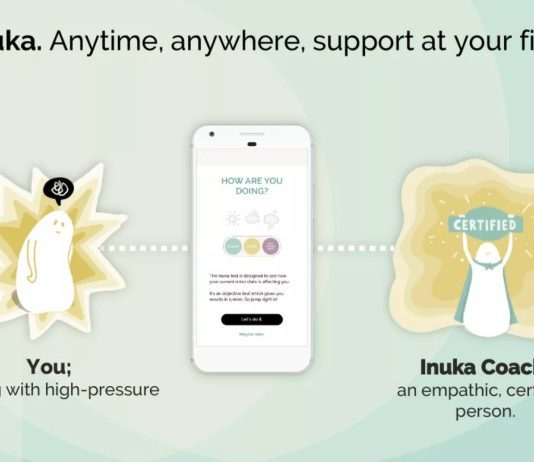
With the stress of dealing with COVID-19 affecting remote workers around the globe, our mental health coaches have learned valuable lessons helping workers cope.
While we all slow the spread of COVID-19, people around the world are plagued by fear and anxiety. Staying home helps us stay safe from a health perspective, but there are now other things to worry about…
Missing family and friends
Wondering about the state of the economy
Complete upheaval of our normal lives and schedules
Inuka coaches have been helping employees deal with stress and mental health challenges since 2018. Now, with global lockdowns in place, remote workers are at extreme risk of stress, anxiety, depression, and burnout.
We want everyone to continue to do their part and stay home, but we want them to remain in excellent mental health while they do!
In this post, we’re sharing everything we’ve learned from helping remote workers deal with the unique challenges of life during the coronavirus.
During the Covid-19 crisis, we are making a limited number of Inuka coaching programs available for FREE (pay-what-you-can). Visit our Covid-19 Support page to find out more.
1. Problem Solving Therapy works in any situation
When we first started offering Problem Solving Therapy (PST) to employees, we wondered how well it would apply. Our co-founders had previously only had experience using PST for rural clients in Africa. Would it apply to first-world workers, whose struggles are so different, the same way?
We quickly discovered that yes, it does.
No matter what we’re facing, we’re all very similar. When we get overwhelmed, we need to get unblocked so we can move forward.
The Inuka Method, which is grounded in PST, works like this:
Map out and discuss what is bothering the client in their private and/or work life and discover the top problem(s)
For those main problem(s), help the client brainstorm solutions they can do to fix it
Together, choose the top solution(s) and turn that into an action plan that they need to fulfill before the next session
This simple coaching structure is enormously effective. Regardless of the type of company, employee, or problem, this same structure works across the board to reduce stress and put people back in the driver’s seat of their lives.
PST is used around the world, and our co-founder was the first to show its effectiveness for treating anxiety and depression. Today, Inuka is the first to make this method available digitally via remote sessions.
2. People respond better to their own solutions than to external advice
If someone tells you what to do, will you do it? Probably not! Your inner rebel comes out the minute you’re given advice.
That’s partly why our coaches never give direct advice about what an employee should do to reduce their stress and risk of burnout.
But not only do people not respond well to advice, they’re also far more likely to take action if the solution was their idea.
During Step 2 of our PST session structure (when we brainstorm solutions), we encourage clients to come up with the possible solutions themselves. If clients feel stuck, hopeless, or lost, we have a couple simple ways to spark their imagination.
We ask them:
What did you do to get out of this situation the last time it happened?
What would a friend tell you to do?
Even if they’re imaging their past selves or a friend giving them advice, they’re so much more likely to implement it if the solution comes out of their own mouths (not ours).
3. We’re all in the same boat of uncertainty
At any given time, none of us know what is going to happen next. Some people tend to ignore this fact. Some people dwell on it and allow themselves to fear the unknown with every step. We’re all different.
What’s unusual right now is that nearly everyone has come face to face with some level of uncertainty: not knowing when their kids can go back to school, not knowing if their employer can sustain payroll for everyone at the company.
People around the world are dealing with the stress and anxiety of this situation.
Sharing in this journey has helped us lean even deeper into PST and believe in the Inuka Method even more.
4. Creating structure is enormously powerful
One of the most common issues we hear about during this time is a lack of structure.
People are missing out on so many features of their normal lives:
Routine commute to work (especially missed if walking or cycling)
Weekly exercise classes
Weekly social events
Daily or weekly company meetings
Team members at work going home, signaling the end of the day
Reliance on child care and schooling
Over and over again, the lack of structure is a recurring theme in our coaching sessions. It’s blurring work and personal life more than ever before. Some employees simply don’t know how to separate the two, and it’s causing enormous stress.
From what we’ve seen working with clients, the best way out is to simply create lots of structure in your life.
These are some ideas that clients have brainstormed and implemented:
Pretend to walk or cycle to work every day by riding a stationary bike or walking around the house
Create an end-of-work ritual like putting laptop in a closed closet or eating a healthy snack
Schedule regular exercise times, such as doing a workout video Monday, Wednesday, and Friday at 6pm
Set a schedule for TV time for yourself and your family
Set a schedule for screen time and schooling time for children
If you’re also facing a lack of structure, ask yourself what simple new structures you can create.
5. It is possible to release what you can’t control
From our mental health coaching, we’ve also learned that it is absolutely possible to let go of what you can’t control.
You don’t have to let stress and anxiety take over your life. There’s something you can do about it.
The Inuka Method includes an incredibly simple way to spark this change in clients. When we identify the biggest problem they are focusing on this week, we then ask what might have triggered or caused that problem.
When they describe the cause, we then ask them: “Do you have control over this particular thing?”
We don’t tell them what they do and don’t have control over.
We ask them.
It’s that sense of personal responsibility that makes all the difference. They identify for themselves whether or not they can control it. That naturally opens up their mind to accept that they can’t control it. If we simply told them, that could shut the mind down and trigger stubbornness around the issue.
Once they realize for themselves that they don’t control something, they usually decide that there’s no point in worrying about it, and they let it go.
The simplicity of that question is so powerful.
6. We’re more creative and resilient than we realize
A lot of people assume that if they’re not an artist, they’re not creative. But we all possess creativity when it comes to solving problems. Creativity is part of our survival instincts.
As we coach more and more remote workers through the coronavirus stress and isolation, we learn even more about human creativity.
People come up with really cool ideas to deal with all of this uncertainty.
Clients brainstorm ways to combine cleaning with working out. They make fun schedules for themselves and their partners (like Monday YouTube, Tuesday at-home projects, and Wednesday drawing night). They find different ways to connect with family and friends, playing online games together and taking online classes together.
During the toughest times, we can all lean on our innate creativity and resiliency.
7. Helping others reminds us to help ourselves
Isn’t it true that the best way to learn is to teach?
We’ve definitely noticed this phenomenon when coaching. By helping others implement the Inuka Method and PST, it reminds us to do the same for ourselves. We see that even the smallest step forward to make a change can snowball into major life improvements.
By holding others accountable, we remember to hold ourselves accountable. We write down our action plans and double check the following week that we actually did them.
Having these habits reinforced each week is incredibly valuable during this trying time.
8. Starting with small steps can work wonders
Before the COVID-19 stress, people often would start with very small tasks when brainstorming solutions to their main problem. Even when big things are happening around the world, this still holds true.
In fact, people who are experiencing the highest levels of stress and anxiety are the most likely to think of tiny actions to help them move forward. The task they might come up with could be as small as making a to-do list for the week, doing the laundry, or committing to getting dressed in normal clothes every work day.
When we first start working with someone, they usually start with small actions, and then these get bigger over time. Within three or four sessions, people are brainstorming big changes in their lives, such as breaking up with a partner or quitting a higher education program that no longer fits their goals.
9. It’s important to make an action plan and be held accountable
We all need to talk things out sometimes. Having a trained professional to listen to problems, spark creative problem-solving in us, and help narrow down action steps is incredibly helpful.
When that action plan gets written down, it has an immediate positive impact. Clients already feel more powerful in their lives. They feel a sense of commitment to the solution.
What’s even better is the accountability we provide simply by following up during the next session. Did they do what they said they would? Did it have the desired outcome? If not, what should they try next?
Everyone needs accountability. Discover ways that you can offer this to your employees, so they can get unstuck faster.
Ultimately, through coaching people during this time, we’ve learned that during times of uncertainty, the simplest actions have the biggest impact on mental health.
Visit our homepage to learn more about how you can offer Inuka coaching to your employees.
The post 9 Lessons Learned from Supporting Remote Workers Through COVID-19 Stress appeared first on Seats2meet.
April 18, 2020
Onderzoek naar reputatiescores op platformen draagt bij aan inclusieve arbeidsmarkt
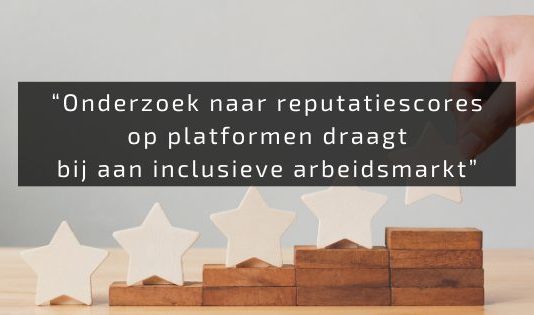
Platformdeskundige Martijn Arets gaat onderzoek doen naar manieren waarop reputatiescores duurzaam kunnen worden verankerd op platformen in de kluseconomie. Een pluriforme groep partners ondersteunt dit onderzoek, dat juist nu zeer relevant is, aldus Arets: “De rol van platformen groeit en biedt kans aan mensen die elders moeilijker aan een baan komen. Die opdrachtnemers worden steeds afhankelijker van reputatiescores. De impact van een diploma is nihil, terwijl de impact van reputatie maximaal is.”
De markt van platformen in de kluseconomie groeit en neemt steeds meer een unieke positie in bij het samenbrengen van vraag en aanbod van werk. Die unieke positie zit hem onder meer in het feit dat platformen inclusieve bemiddelaars zijn, zegt Martijn Arets: “Recruiters selecteren op basis van bias en cultuur, op een platform heeft iedereen een gelijkwaardige kans. Platformen bieden daardoor kansen aan mensen die elders niet aan de bak komen.”
Met het groeien van deze specifieke toegevoegde waarde van platformen, wordt de vraag hoe systemen daadwerkelijk functioneren én verbeterd kunnen worden steeds belangrijker. Een van de meest interessante vragen daarbij is de rol van de reputatiescore. Onderzoek toont aan dat de impact van reputatiescores voor opdrachtnemers op veel platformen doorslaggevend is bij het krijgen van nieuw werk.
Het onderzoek richt zich op de vraag hoe reputatiescores kunnen bijdragen aan meer empowerment voor de werkende. Arets legt uit: “We gaan op zoek naar het antwoord op drie vragen. We gaan kijken hoe platformen kunnen zorgen dat de scores meten wat ze moeten meten. Daarnaast gaan we onderzoeken hoe data portabel kunnen worden gemaakt. Het gaat hier om de vraag hoe een omgeving kan worden georganiseerd waar mensen hun score kunnen meenemen naar een ander platform. In de derde plaats onderzoeken we hoe de continuïteit van de data geborgd kan worden als bijvoorbeeld een platform failliet gaat.”
Arets is erg verheugd over de sterke en gevarieerde groep partners die zich aan het onderzoek verbindt: “We kiezen bewust voor samenwerking met partners uit de praktijk. We hebben een zeer pluriforme set aan partners die normaal gesproken niet vaak samen optrekken.” Over de aanleiding om het onderzoek te ondersteunen zegt Marije Ottenvanger van FNV: “FNV vindt het belangrijk dat werkers zelf beschikken over hun reputatiedata. Ze zetten zich immers hard in om een goede score te krijgen en te behouden. Daarom zijn wij partner: om mee te denken over technologische vooruitgang die eerlijk en transparant uitpakt voor elke betrokkene en juist ook voor de werkenden zelf.”
Seats2Meet is ook een van de partners die dit onderzoek ondersteund. Ronald van den Hoff, oprichter Seats2meet over de samenwerking: “In het post Corona tijdperk worden platform nog belangrijker. Organisaties gaan decentraliseren en samenwerken met zelfstandige professionals in netwerken. Netwerken die meer en meer ook met elkaar in verbinding zijn. Transparantie en data portabiliteit blijven een uitdaging. Privacy en reputatie worden uiterst belangrijke bouwstenen van deze nieuwe sociaal economische maatschappij. We staan hiermee aan het begin. Daarom is degelijk onderzoek nodig, zodat wij daarmee als bedrijf een bijdrage kunnen blijven leveren aan deze nieuwe toekomst, de Society30.”
Martijn Arets merkt dat de partners enthousiast zijn vanwege de concrete insteek van het onderzoek: “Er wordt veel geroepen over dataportabiliteit, maar er is nog nauwelijks onderzoek naar gedaan. Dit onderzoek wil de praktijk ondersteunen. Zo ondersteunen we de platform-sector bij de verdere volwassenwording en bij het versterken van haar unieke positie met betrekking tot het samenbrengen van vraag en aanbod op de markt van flexibele arbeid. Bovendien dragen wij bij aan een sterkere positie van de opdrachtnemer in deze markt.”
Achtergrondinformatie
Martijn Arets is internationaal platform expert en verkent sinds 2012 de opkomst van de platformeconomie en de impact op de samenleving. Hij werkt voor het onderzoek samen met de meest gerenommeerde wetenschappers op het vakgebied en met de volgende partners: UWV, YoungOnes, Seats2Meet.com, FNV, Freshheads en ETUI. Het onderzoek loopt van april 2020 tot april 2021. Meer informatie is te vinden op www.kluspaspoort.nl.
The post Onderzoek naar reputatiescores op platformen draagt bij aan inclusieve arbeidsmarkt appeared first on Seats2meet.
Research on platform based reputation scores contributes to an inclusive labor market
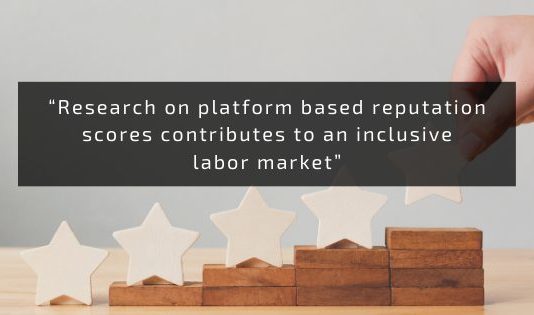
Online platform expert Martijn Arets researches upon the ways in which reputation scores may be used sustainably within the gig economy and how their continuity can be guaranteed on these platforms. This research is backed by a multi-faceted group of partners, which is considered especially relevant at this point. According to Arets “Platforms play a growing role in the economy and offer opportunities to people who would have had more difficulties finding a job elsewhere. These contractors are becoming increasingly dependent on reputation scores. Now, the impact of a degree is next to nil, whereas the impact of reputation is souring.”
The market for platforms within the gig economy is expanding and taking on an ever more distinctive position in its matching of supply and demand of labor. “This unique position is generally found in the fact that platforms are inclusive mediators that, unlike recruiters which select with bias and based on culture, offer equal chances to everyone. Platforms hence create opportunities for people with difficulty getting hired elsewhere”, states Martijn Arets.
With the growth of this specific added value of platforms, concerns about the functioning of systems and how to improve these are becoming more important. One of the most interesting questions associated with this is the role of reputation scores. Especially, as recent research has noted that the impact of reputation scores is a decisive factor for contractors while obtaining new gigs.
Arets research hits towards this point questioning how reputation scores may contribute to more empowerment for the workers. As Arets explains, “We’re trying to answer three questions. First, we’re looking at how platforms may guarantee that their scores measure what they are intended to measure. Secondly, we’re researching how data could be made portable. The central question here is how we could organize an environment where people could transfer their scores to another platform. Finally, we’re researching how the continuity of data can be guaranteed, for example, in the case a platform goes bankrupt.”
In particular, Arets is excited about the various and strong group of partners committing to this research: “We’re consciously choosing cooperation with partners from the field. We’ve managed to gather a strong multi-faceted set of partners that wouldn’t normally work together that often.” As Marije Ottenvanger, spokesperson of the FNV (the largest trade union in the Netherlands), elaborates on her choice to support this research, “It is important to the FNV that workers can manage their reputation data themselves. They are putting a lot of effort in getting and keeping good scores. That is why we are committed to think along; to see technological progress transparently and honestly unfolding for every stakeholder, especially for the workers themselves.”
Part of the enthusiasm among the partners is additionally due to the practical approach of this research recognizes Arets. “There is a whole lot of fuss about the portability of data, but there is hardly any research available. We are looking to give support to those on the ground. We are supporting the platform sector in maturing further and developing its unique position in the matching process of supply and demand on the flexible labor market. Moreover, we’re contributing to a stronger position of the contractors operating in the gig economy.”
Background information
International platform expert Martijn Arets has been exploring the rise of the platform economy and its impact on society since 2012. For this research he will be working hand in hand with renowned scientist and the following partners: UWV, YoungOnes, Seats2Meet.com, FNV, Freshheads, and Etui. The research is scheduled from April, 2020 until April, 2021. More information can be found on www.kluspaspoort.nl.
The post Research on platform based reputation scores contributes to an inclusive labor market appeared first on Seats2meet.
April 16, 2020
Verkoopstrategie aanpassen in onvoorziene omstandigheden
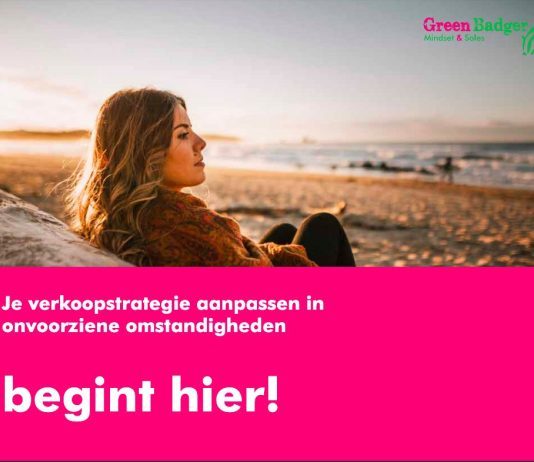
We leven ontegenzeggelijk in roerige tijden. Strategieën en methoden die een paar dagen geleden nog succesvol waren leveren nu geen resultaat meer op. In dit e-book reiken we je vier eenvoudig uit te voeren stappen aan om je hoofd weer helder te maken en je verkoopstrategie aan te passen aan de nieuwe werkelijkheid. Daarnaast delen we acht praktische ideeën die we sinds 16 maart hoorden, zagen, of uitgevoerd hebben.






The post Verkoopstrategie aanpassen in onvoorziene omstandigheden appeared first on Seats2meet.
The virtual world – Orchestrated possibilities

Welcome to a new reality and the possibility of your world colliding, shifting, changing and evolving forever.
Just a few days into this new reality, we find that we are social creatures after all. Our laptops, mobile devices and tablets give us an insight into the world outside. These online tools help us to communicate, share emotions, transfer ideas and stay connected to people who are important to us.
In this time of rapid change and total turn-around of everything as we knew, this time 30 days ago, we have quickly adapted our behavior. Scientists have found out that change of behavior varies from person to person. Further, depending on the circumstances, you will either adapt or die. In general terms, the time frame for human behavior to adapt and develop new habits is 66 days. Take that into account and you will realise that your adaptation, required in just 21 days is a radical and massive transformative expectation.
In the current circumstances you have been given 21 days to adapt. From the most basic of your human behavior to the most complex. You have been directed to adapt your behavior. You have been legislated to adapt your behavior. For your own good you are forced to adapt your behavior.
The great news, is that some things that we are asked to adapt to, can bring a great benefit to us both now and in the future. For example, never before has the phenomenal benefit of online tools been appreciated as much. Everything from auditory, to visual, to virtual experiences have taken on a new meaning. We have learnt to appreciate music in a different way, embracing technology that permits us to feel as if we are surrounded be a real orchestra with real musicians.
This leads to understanding how we need to interact appropriately when we use technology, in solitude or in unison. In solitude, we can use technology as it suits us, switching between apps, messages, voice, video or entertainment channels.
In unison, it becomes more challenging, but it is possible if all the players in the room understand their roles, their functions, their contribution and the outcome.
So let’s start:
Imagine you are an orchestra, online – how do you go about creating a successful rendition of Beethoven’s Ode to Joy?
You prepare with a conductor before-hand. In this preparation you all agree that you are going to play from the same song sheet – in this case Ode to Joy. You already know your role in the orchestra, since you have played together before. You agree to stick to your piece of music, playing your instrument of accomplishment.
As the violinist, you commit to understand the role of all the other players in the orchestra and that you will follow the music accordingly. Then you practice your part for the preparation session to follow.
The conductor then advises you of the date and time for the preparation session. You ensure that you are ready for the session so that you don’t disappoint any-one and you look professional, after all music is your life and your profession.
You all turn up for the preparation session, the internet connection is established, your instrument is tuned, you found a quiet place where no one will disturb you (who want’s a barking dog during Ode to Joy!). Your music is ready on the music stand. Your camera is focused on you and no distracting features can be seen by anyone else viewing.
You watch for the right moment for the conductor to indicate that the music is about to begin.
You focus on the conductor while maintaining the pace, volume and direction on your music sheet. Everyone else does this too. No-one plays too loudly, overwhelming others. You ensure that your piece is interpreted perfectly. You listen to the rest of the orchestra and you check your own contribution to the quality of the music throughout. It is working so beautifully that you begin to sway to the rhythm. Who would have thought that this could work out so seamlessly on-line! The obo, cello, first violin, second violin, bass, flute, clarinet, trumpet and drums all in perfect harmony.
You reach crescendos in the correct places, you calm the pace in the right phrases, you are not out of tune, not even once. Your singular presence in the room has created beautiful harmony with others. The music reaches its final closure. You quietly lay down you instrument and turn-off your camera.
You have achieved entertaining others, without jarring notes, loud clangs or displeasing harmony – you are a professional. Well done.
This was really achieved – watch here: but first, consider adopting similar rules when being a ZOOM user:
Be properly prepared, know the date, time and link. Appear punctually, even 5 minutes before if the host has enabled this feature
When you enter the Zoom room, ensure that you microphone is on mute
Use the chat feature to say hello to others who have entered the room – you can chat to one or all in the room, you choose
Wait for the host to start the conversation and lead the topics.
Use the hand raise feature if you wish to make a comment
It is better to ask your questions via the chat feature – use that
Let the host lead you into a discussion and give you a turn to speak
When it is your turn to speak, be concise, to the point and maintain the relevance to the purpose of the meeting
Let the Host guide the topics for the meeting. After all, this is good manners
If you wish to add points to the agenda, make it brief and make it relevant
Not all topics can be accommodated – be aware of this and add it to the agenda for the next time
Focus on the purpose of the meeting – it can go all over the place if we share our wine choices or our venue surroundings
Be focused, make a positive contribution, check if you are adding value
Before the end of the meeting, the host will invite all participants to comment. Keep it short.
Once the host has summarized the meeting, the actions to follow up and the accountable parties to do so, the meeting ends.
Say goodbye using the chat feature.
Log off.
Enjoy the video!
Lyn Render
Managing Partner
C: 072 247 0860
lyn@seats2meetsa.co.za
The post The virtual world – Orchestrated possibilities appeared first on Seats2meet.
April 15, 2020
Dit zijn de mannen die de steunmaatregelen optuigen. Representatief?

Kwetsbare zekerheden
Deze pandemie laat ons genadeloos zien hoe ongelofelijk kwetsbaar en fragiel wij en al onze ‘zekerheden’ zijn. Onze gezondheid en onze gezondheidszorg. Ons vanzelfsprekend samenzijn en onze eerdere bijna gedachteloze aanrakingen. Onze schoolgaande kinderen, onze mobiliteit, ons werk en ons inkomen. Niets is nog vanzelfsprekend. Dat was het natuurlijk al nooit, maar wat lieten we elkaar graag in die waan. Daar is nu abrupt een einde aan gekomen.
Contract neutrale steun?
Even dachten wij van de Werkvereniging, misschien zorgt deze crisis ervoor dat de heilige huisjes losgelaten worden omdat men beseft dat we allemaal kwetsbaar zijn. Werknemers, werkgevers, ondernemers en iedereen die daartussen valt. Misschien kunnen de regels die gelden voor mensen in speciale vakjes en hokjes, even losgelaten worden om maatregelen te organiseren voor iedereen die die steun nodig heeft. Los van hun juridische relatie tot de arbeidsmarkt omdat we immers allemaal mensen zijn die erbij gebaat zijn om elkaar niet te laten vallen. Nu we in het Corona virus een gezamenlijke vijand hebben, kunnen we misschien ook samen optrekken om ons tegen dreigende armoede te wapenen.
Rechtsongelijkheid
We waren dan ook sprakeloos toen we minister Wiebes bij WNL hoorden zeggen dat zelfstandigen niet op extra financiële steun hoeven te rekenen. ‘Zzp’ers hebben zelf gezegd: ik hoef geen vast dienstverband. Dit zijn mensen die hebben zelfbewust dat risico genomen’, aldus de minister. Daarop hebben we als Werkvereniging uiteraard laten weten dat een minister met uitspraken als deze pure rechtsongelijkheid creëert. Elke vorm van werken en ondernemen brengt risico’s met zich mee. Maar risico’s als deze kan geen mens voorzien, niemand kan zich daar tegen indekken. Maak zelfstandigen geen tweederangsburgers. Ook zij hebben gezinnen, betalen belasting en zijn onmisbaar voor de economie. (Lees de rest van het persbericht hier). Ook van het artikel van Volkskrant redacteur Yvonne Hofs ‘Na deze crisis moet het zzp-schap echt op de schop’ zakte onze monden open. Ja, we moeten met zijn allen wat doen aan het feit dat het opbouwen van een buffer zo onaantrekkelijk is dat kleine en grote ondernemers te weinig vet op de botten hebben. Geld op de bank hebben kost tegenwoordig geld. Maar dat is geen zzp probleem!
Niet alleen boe roepen
De opluchting was groot toen er dan toch steun aan zelfstandigen werd toegezegd. En omdat we als Werkvereniging niet alleen maar boe willen roepen – zeker niet in een tijd dat iedereen zijn stinkende best doet – hebben we laten weten blij te zijn dat de soep van Wiebes gelukkig niet zo heet gegeten werd. Daar waren we dankbaar voor.
Dankbaar maar kritisch
Helaas bleek al snel dat de maatregelen voor werknemers vele malen ruimhartiger zijn dan die voor zelfstandigen. Nederland blijkt zelfs zuiniger met noodsteun aan zelfstandigen dan een aantal andere landen. (Lees hier het artikel van ZipConomy Nederland zuiniger met steun aan zzp’ers dan aantal andere landen.) Daarnaast werd bij het optuigen van alle noodmaatregelen, pijnlijk duidelijk dat er wederom geen vertegenwoordigers van Modern Werkenden aan tafel zitten. Zo kan een parttimer in vaste dienst rekenen op doorbetaling van zijn of haar volledige salaris maar krijgt een parttime zelfstandige helemaal niks.
Geen steun voor deeltijd zelfstandigen
Dat er inmiddels 250.000 hybride werkenden zijn – zelfstandigen die naast hun zp-werkzaamheden ook in loondienst werken – en dat daar ook kostwinners tussen zitten die onder het minimum zakken, daar heeft men duidelijk geen boodschap aan. Zo bleek tijdens onze verwoede lobby-pogingen. Kijkend naar de foto van het gezelschap dat verantwoordelijk is voor het optuigen van deze noodmaatregelen, zou het ons niet verbazen als de heren denken dat parttime werkende zelfstandigen vooral huisvrouwen zijn die met webwinkeltjes hobbyen. Zucht.
Verschil in steun onevenredig groot
De doelstelling van het kabinet om werkenden te beschermen tegen verlies van inkomen komt goed tot uiting in de steun om voor bedrijven met personeel maximaal 90% van de loonkosten over te nemen. Voor werknemers in dienst is alles prima geregeld via de Tijdelijke Noodmaatregel Overbrugging Werkgelegenheid (NOW) en wel tot een maximaal bedrag van circa 100.000,- euro per werknemer. Helaas komt deze doelstelling naar onze mening volstrekt onvoldoende tot uiting in de maatregelen voor zelfstandigen. Voor zelfstandigen is er de Tijdelijke overbruggingsregeling zelfstandig ondernemers (TOZO) bestaande uit een uitkering van 1000,- tot 1500,- euro per maand waarop zelfstandigen met en zonder personeel, slechts aanspraak kunnen maken als hun inkomen tot onder het bijstandsniveau is gedaald. Dit betekent dat zeer veel zelfstandigen met een forse inkomensachteruitgang geen enkele steun kunnen krijgen.
Het feit dat een grote groep werkenden niet beschermd is tegen verlies van inkomen zal tot een stijging leiden van het aantal mensen met forse schulden. Het economisch herstel zal ook worden bemoeilijkt als honderdduizenden mensen hun werkzaamheden t.z.t. niet meer kunnen oppakken, omdat ze ‘kopje onder’ zijn gegaan.
Oproep aan het kabinet
Samen met onze medestanders Zelfstandigen Bouw, SoloPartners, Beroeps Organisatie Kunstenaars (BOK) en ook met ONL en Zelfstandige Professionals hebben wij een brief naar het kabinet gestuurd waarin we een dringend beroep op ze doen om deze ongetwijfeld onbedoelde tweedeling tussen bedrijven met en bedrijven zonder personeel – én in feite ook tussen werkenden – recht te trekken.
“DE BIJZONDERE SITUATIE WAARIN WIJ ALLEN ZIJN GERAAKT, VEREIST VERTROUWEN IN EEN OVERHEID DIE ALLE WERKENDEN BESCHERMD. WIJ VRAGEN U DAN OOK ALSNOG TE BESLUITEN ALLE ZELFSTANDIGEN DIE GECONFRONTEERD WORDEN MET EEN FORS OMZETVERLIES EEN FINANCIËLE TEGEMOETKOMING TE VERSTREKKEN.”
Geen plek voor de nieuwe polder
Zo’n brief is helaas nodig omdat, net nu we als Werkvereniging een voet tussen de deur van politiek Den Haag begonnen te krijgen, de crisis wordt aangegrepen om deze deur weer razendsnel wordt dicht te trekken. Alleen de vertegenwoordigers van de oude polder schuiven aan bij het wekelijkse crisisoverleg. We zouden niet graag in hun schoenen staan omdat het geen makkelijke opdracht is om orde in deze chaos te scheppen. Met des te meer energie blijven wij ons inzetten om ervoor te zorgen dat er oplossingen worden gezocht die recht doen aan alle werkenden.
Klik op de linkjes als jij ons wil laten weten in hoeverre jij je als Modern Werkende vertegenwoordigd voelt door politiek en polder en in hoeverre je voor/tegen een arbeidsvorm-neutrale toegang tot basiszekerheid bent Dan koppelen wij dat terug naar politiek en polder!
Omdenken
Waarom zouden we het systeem niet omdraaien: iedereen, die geen werknemer is, krijgt gedurende de maanden maart, april en mei een drie twaalfde van zijn of haar belastbaar inkomen over 2019 uitgekeerd. Dat is gewoon ‘omzet/inkomen’ en moet als zodanig aan het eind van de rit weer worden meegenomen in het belastbaar inkomen bij je aangifte over 2020. Mensen die de subsidie aanvragen en dit jaar toch erg goed draaien worden gewoon afgetopt bij de aangifte over 2020. Het surplus boven het belastbaar inkomen over 2019 wordt bijvoorbeeld 100 % belast. Zij die dat niet willen, vragen geen subsidie aan. Iemand die ‘deel’ als salaris krijgt en een deel als ‘omzet’, zal dat naar rato in mindering moeten brengen op die uitkering (bij het aanvragen daarvan), en anders wordt het ’te hoge’ belastbaar inkomen aan het einde van het jaar ook hier gewoon 100 % belast. Kortom we denken graag mee om oplossingen te bieden.
Wij laten onverminderd van ons horen
Achter de schermen zijn we druk aan het lobbyen en ook in de media laten we onverminderd van ons horen. Hieronder vind je de linkjes naar onze media-uitingen. Daarnaast willen we jullie ook graag attenderen op het geweldige werk dat een aantal van onze medestanders geleverd hebben om alle steunmaatregelen te doorgronden en de Corona-gerelateerde informatie zo helder mogelijk op hun sites weer te geven. Doe er je voordeel mee!
Corona steun informatie van onze medestanders
· Platform voor startende ondernemers: Ikwordzzper.nl
· Corona dossier: https://www.ikwordzzper.nl/dossier/coronavirus/
· Beroepsorganisatie voor Beeldend Kunstenaars: Boknet
· Voor zzp’ers in hout, bouw en techniek: Zelfstandigen Bouw
· Zelfstandigen in de zorg: SoloPartners
Werkvereniging in de media
· RTL Z Niews: Roos bij RTL Z Nieuws
· RTL nieuws: Zzp’er tijdens de coronacrisis: waar heb je recht op?
· Ondernemersbelang: Noodfonds zzp’ers noodzakelijk en rechtvaardig
· ZipConomy: “Noodfonds zzp’ers noodzakelijk en rechtvaardig”.
· ZipConomy: Kabinet komt met “kanon aan maatregelen.”
· Algemeen Dagblad: ZZP’er blij met corona-steunpakket
· Zipconomy: Schrap-komend-kwartaal-ondernemers-belastingen/
· BNR: ONDUIDELIJKHEID BIJ ZELFSTANDIGEN OVER CORONACOMPENSATIE
· BNR Zakendoen met Roos Wouters (De Werkvereniging).
The post Dit zijn de mannen die de steunmaatregelen optuigen. Representatief? appeared first on Seats2meet.
Ondernemers met innovatieve ideeën opgelet!
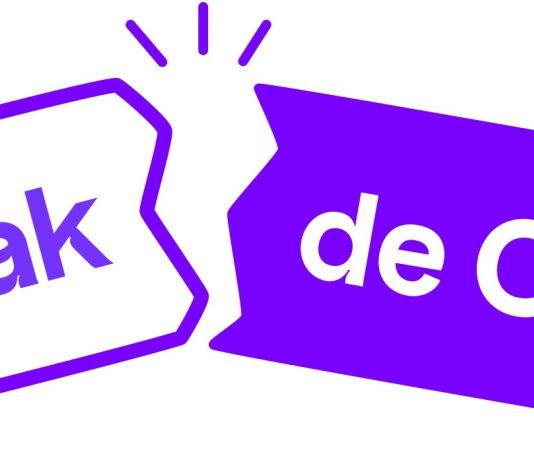
Hoe kun je als ondernemer ervoor zorgen dat Nederland veerkrachtig uit de crisis komt?
Meld je jou idee aan voor de grootste nationale crowdsourcing voor een duurzamer, socialer en economisch sterker Nederland!
Hoe werkt het?
De coronacrisis verplicht velen om stil te staan. Laten we van dit momentum gebruik maken om te kijken hoe we onze maatschappij en economie hebben ingericht en hoe we onze systemen na de crisis willen opbouwen.
In welk stadium jouw idee of initiatief ook is, wij helpen je om het samen met experts verder te ontwikkelen. We hebben coaches, potentiële investeerders en andere partners gemobiliseerd om je, gedurende 1 week, te ondersteunen om jouw inzending voor een duurzamer en socialer Nederland na de crisis op te schalen.
Ons doel is om de 3 winnende concepten met €5.000 te funden en te voorzien van professionele coaching.
Jouw idee
We zijn op zoek naar ideeën die bijdragen aan een socialer en duurzamer Nederland. Ideeën of initiatieven die nu, maar ook na de crisis werkgelegenheid creëren. Zo bouwen we samen het fundament voor een veerkrachtig land.
Heb je een tof idee? Kijk dan voor meer informatie op www.kraakdecrisis.nl en meld je idee aan!
Notice: JavaScript is required for this content.
The post Ondernemers met innovatieve ideeën opgelet! appeared first on Seats2meet.
April 10, 2020
Jitsi, wat is het en waarom deze tool gebruiken?
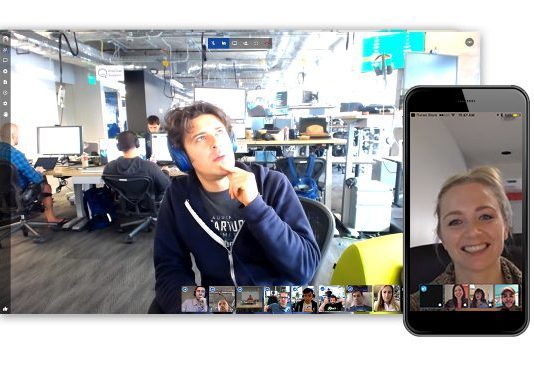
Zoom, Skype, Houseparty, videobellen kan via vele tools. Maar voor welke tool kies je nu?
Bij de S2M Virtual cowork lounge gebruiken we Jitsi, een vrij onbekende tool voor het grote publiek daarom hierbij XX redenen waarom wij voor Jitsi gekozen hebben.
-Veiligheid
Jitsi is een open source en community based tool. Dit zorgt voor meer transparantie en daarmee veiligheid.
-Transparantie
Wij houden van transparant en duidelijkheid, iedereen kan de broncode van Jitsy controleren.
-Schaalbaarheid
De tool is makkelijk te gebruiken voor kleine groepen, maar ook hele grote groepen.
We zijn benieuwd wat jij van onze S2M virtuele cowork lounge vind.
Probeer het nu uit in jouw S2M Passport.
Meer weten? Kijk op https://jitsi.org/
Of bekijk deze video:
The post Jitsi, wat is het en waarom deze tool gebruiken? appeared first on Seats2meet.
April 9, 2020
Een virtuele plek voor professionals

Dit is het Seats2meet paspoort, je toegang tot een groot netwerk van professionals. Ons AI-algoritme koppelt je met experts, locaties, events en andere relevante content.
Dit is de plek waar je antwoord kan krijgen op je vragen, contact maakt en praat met mensen die passen bij jouw interesses en werk, events creëert en je kennis deelt. Allemaal op één plek.
Het S2M paspoort: verbinden, samenwerken en groeien
✓ Verbonden met een wereldwijd netwerk van 130K professionals.
✓ Het AI-gedreven algoritme dat je verbindt met andere professionals, locaties, events en relevante content.
✓ 24/7 toegankelijk. Op ieder apparaat.
Kijk zelf hoe het paspoort in de praktijk werkt
Een aantal feiten en cijfers
✓ Seats2meet.com bestaat sinds 2007
✓ Meer dan 200 locaties in 30 landen
✓ Het Seats2meet magazine heeft 400 auteurs en 30.000 lezers
✓ Meer dan 100.000 actieve Paspoorthouders met meer dan 32.000 expertises
✓ In het Paspoort krijgt iedere vraag 3 relevante antwoorden
✓ Meer dan 2500 georganiseerde events
Lees ook onze 10 beste tips hoe je het meeste haalt uit jouw S2M paspoort!
The post Een virtuele plek voor professionals



